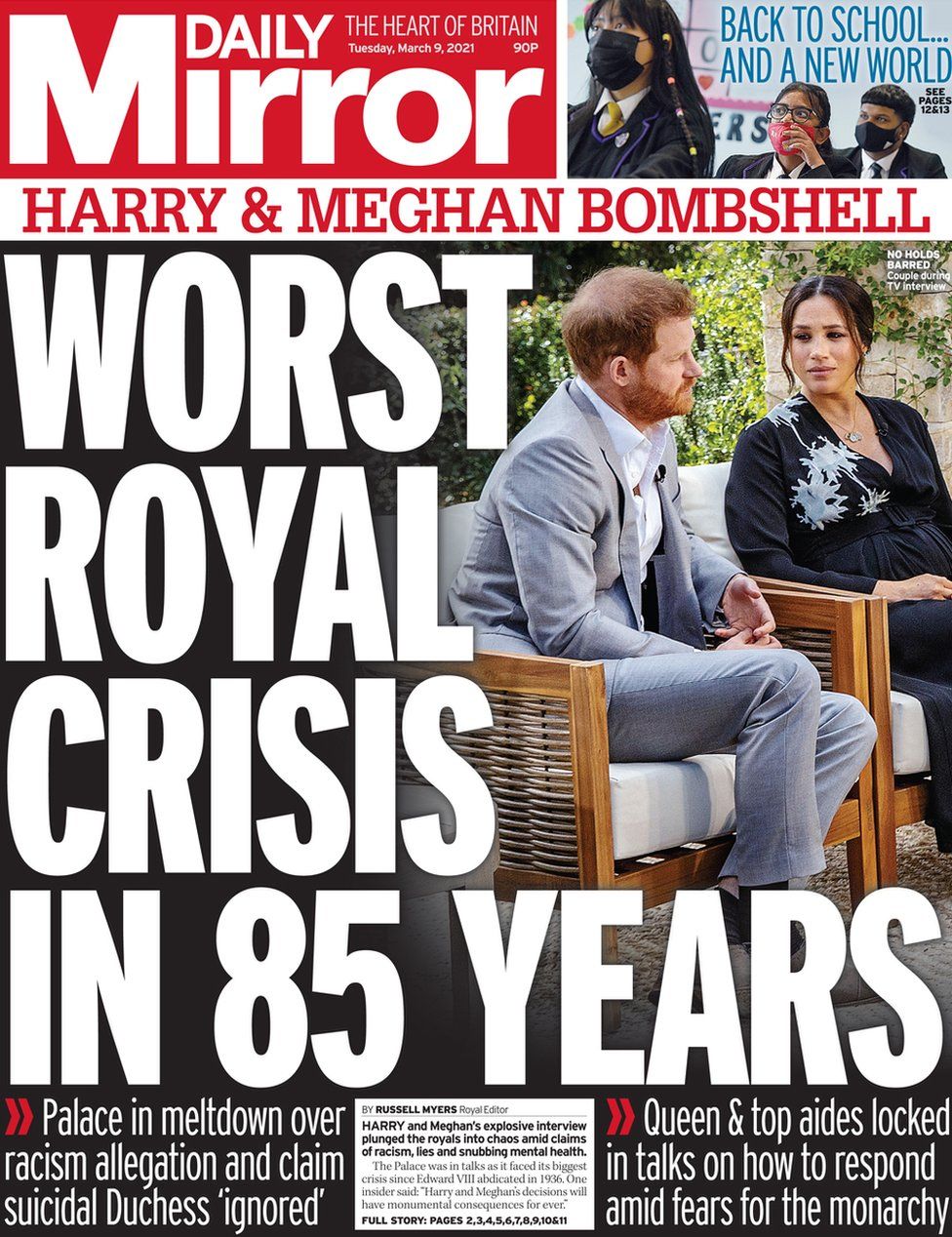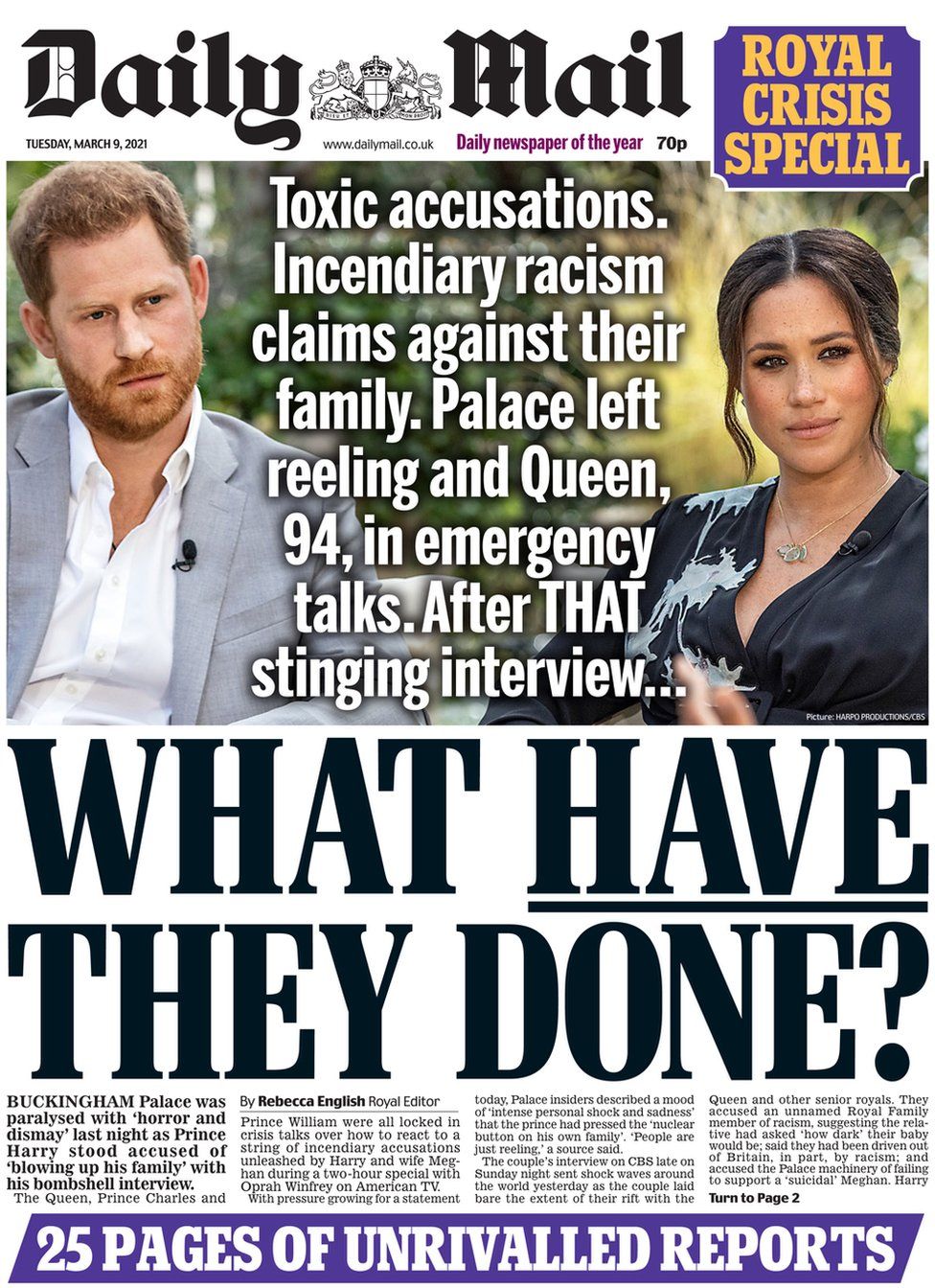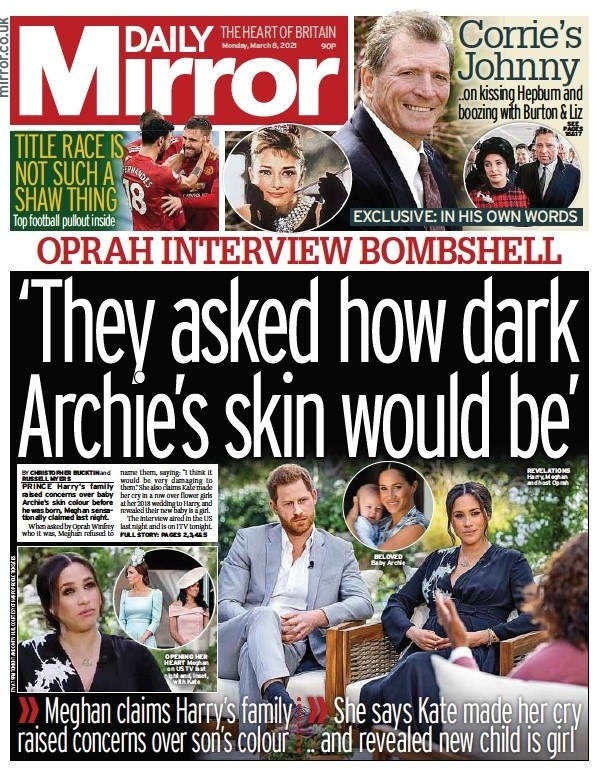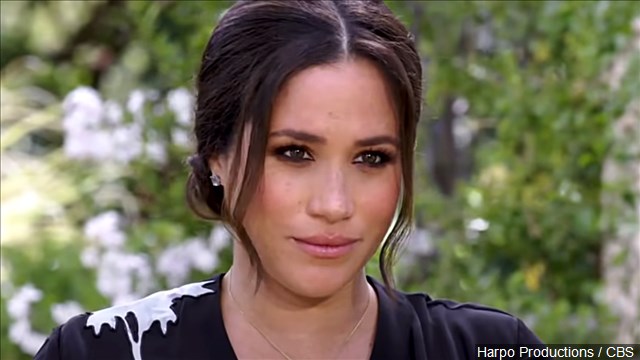LONDON—Explosive allegations by Meghan, Duchess of Sussex, that she faced racist attitudes from both the palace and the UK press have sent ripples of shock around the world. But they came as no surprise to many Black Britons.
Whether it’s the disproportionate impact of Covid-19 on people of color or the lack of non-White faces at the top of British media and politics, ethnic minorities in the UK say racist attitudes and structures of discrimination are pervasive—and all too often denied by society at large.
“This is a country that doesn’t want to have an honest conversation about race,” historian David Olusoga, who presented the TV series “Black and British: A Forgotten History,” said March 9.
In a TV interview with Oprah Winfrey, the former Meghan Markle said isolation and a lack of support from the royal household after her marriage to Prince Harry drove her to thoughts of suicide. She also said an unnamed member of the royal family expressed “concerns” to Harry about the color of her unborn child’s skin—a statement that drew an astonished “What?” from Ms. Winfrey.
Tiwa Adebayo, a communications consultant and journalist, said the couple’s revelations in the interview bore out her worst fears.
“When Meghan joined the royal family, every person of color in the UK was worried,” she said. “This is an institution that is rooted in colonialism. It’s based on White supremacy. I mean, for me, it kind of seemed like ‘How could this possibly end well?’

“I expected there to always be that undercurrent of racism,” she added. “But to hear it so outright, it’s really scary. It’s very shocking. And it’s hard to see how the royal family is going to come back from this.”
It’s a long way from the optimism that surrounded Harry and Meghan’s royal wedding in 2018. The relationship between a grandson of Queen Elizabeth II and a biracial American actress was hailed as evidence that, in modern Britain, skin color and background no longer mattered.
Harold Wilson, a 57-year-old local authority worker in Brixton, a district at the heart of London’s Afro-Caribbean community, said Meghan joining the royal family “should have been an opportunity for them to move forward—but the royal family are not like that.”
“Even before the child has been brought into the world, they are worried about the actual tone of the skin of the baby,” he said. “That tells you everything about them.”
The fairy tale image surrounding the wedding at Windsor Castle faded quickly. Meghan faced tabloid stories about her allegedly demanding behavior and was even criticized for eating avocadoes, which the Daily Mail claimed fuel “human rights abuses, drought and murder.”

Even before the wedding, Harry had complained in 2017 about the “racial undertones” in British media coverage of his then-girlfriend. One tabloid columnist referred to Meghan’s “exotic” DNA. A Daily Mail headline described her Los Angeles roots as “(almost) straight outta Compton” and claimed she came from a “gang-scarred” neighborhood. A TV host described Meghan as “uppity.”
Meghan and Harry cited the intrusive, racist scrutiny of Britain’s tabloid press as a reason for their decision a year ago to give up their jobs as senior royals and move to North America.
The palace issued a rare public statement on a personal matter, saying the royal family was “saddened to learn the full extent of how challenging the last few years have been for Harry and Meghan.”
“The issues raised, particularly that of race, are concerning,” the statement said. “While some recollections may vary, they are taken very seriously and will be addressed by the family privately.”
Like other countries, Britain has faced an uncomfortable reckoning with race since the death of George Floyd, a Black American, at the knee of a U.S. policeman in May 2020 sparked anti-racism protests around the world.
Large Black Lives Matter protests in cities across the UK called on the government and institutions to face up to the legacy of the British Empire and the country’s extensive profits from the slave trade.

The toppling of a statue of 17th-century slave trader Edward Colston in the city of Bristol in June prompted a pointed debate about how to deal with that history. Many felt such statues extol racism and are an affront to Black Britons. Others argued that removing them was erasing a piece of history.
Prime Minister Boris Johnson has criticized the removal of statues, saying “we cannot edit our past.” Opponents accuse him of trying to sweep the negative aspects of British history under the carpet.
Mr. Olusoga said many Britons like to believe that racism is an American problem, something that takes place elsewhere. He said the UK had failed to live up to the story it told itself at the time of Harry and Meghan’s wedding: “that we were this modern multicultural country, a country with a Black princess, a country that was at ease with itself, with its history, with its multiculturalism.”
“We need to look at ourselves more honestly,” he told the BBC. “Now is a moment for self-reflection, not just for the palace, but for the country.” (AP)













